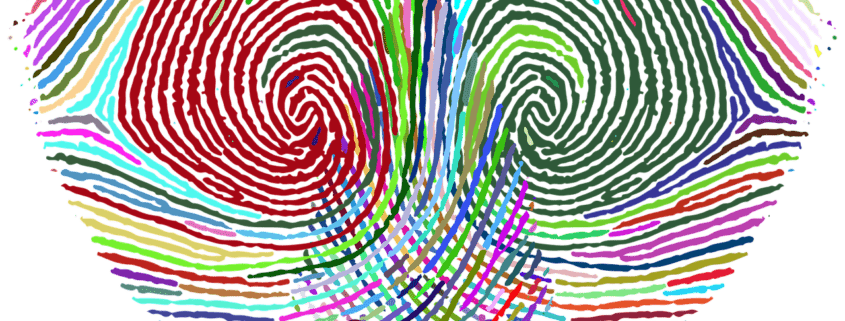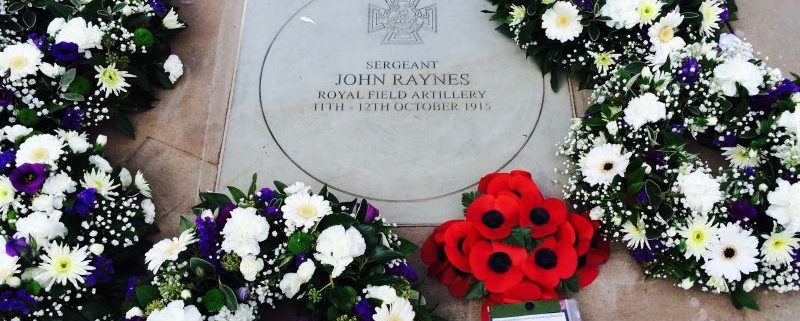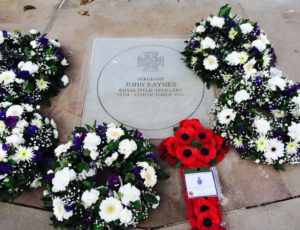“No one has greater love than this, to lay down one’s life for one’s friends” (John 15.13)
Jesus words from John 15 have a special resonance this evening: Remembrance Sunday. They are inscribed on many a war memorial or chapel built in memory of those who fell. Bonds of friendship forged in war endure. One of my last acts as Bishop of Sheffield was to travel to mark the centenary of the Battle of the Somme where the Pals Regiments from northern towns and cities saw their first and tragically their final action of the Great War.
We remember for the sake of those who gave their lives and carry still their mental and their physical scars. But we remember for our own sake as well, if we are wise. We remember as a nation in order to piece back together our identity, our fragmented sense of who we are. We remember together the conflicts which defined the 20th century in the hope that we might somehow find our bearings in the 21st.
As humanity and as a nation we find ourselves in the midst of a crisis of identity. We no longer know who we are. We are lost and cannot find our way home.
Each Tuesday this term, you will find me in a Select Committee in the House of Lords making an enquiry, with others, into Artificial Intelligence. We call witnesses: on the future of work, on data, on business applications, on research, on the media.
Each Tuesday evening my mind has been stretched to capacity. I’m learning many things. That my young grandsons will probably never drive or own a car. That the familiar life script of education then work and then retirement will soon no longer apply. That the impact of AI will fall unequally and adversely on the poor. That social media is rapidly changing political debate and public truth. That the fastest way to be a billionaire is to read for a doctorate in machine learning.
But most of all I am learning more about our crisis of identity. Our science fiction tells us what we already know from our politics: we are deeply unsure of who we are. Each step forward in AI forces us to surrender more of what is supposedly unique about being human. According to one writer, humanity will spend the next three decades, perhaps the next century, in a permanent identity crisis.
Sometimes people ask me – or want to ask me – what a Bishop is doing as part of an inquiry into Artificial Intelligence. AI is too important to be left to the scientists. There are huge ethical questions: not least, on this Remembrance Sunday, around weaponisation.
But I am there most of all because as a Christian, I understand the most important truth about what it means to be human. At the heart of the Christian faith is the faith that Almighty God, maker of heaven and earth, became a person and lived the most authentic human life and gave his life that we might live. The deepest answer to our crisis of identity does not lie in machine learning or robotics, or history. The deepest answer lies in love.
For “No one has greater love than this, to lay down one’s life for one’s friends”
In 1637, in a different age, Descartes coined his axiom, I think therefore I am: cogito ergo sum. He was searching for rational proof of his own existence and found it in his freedom to doubt, to rebel. But Descartes only takes us so far.
Some think Descartes has been recast in the age of consumerism where we define ourselves more and more by what we spend and where we spend it: I shop, therefore I am. Some translate this as Tesco ergo sum.
The Gospel of John offers something much more profound to the anxious philosopher, to the driven consumer, to the fragmented soul seeking an identity which satisfies.
For John says this. We know who we are when we know we are loved by our maker.
As the Father has loved me, so I have loved you, says Jesus. Abide in my love.
That love, received by faith, gives us the strength to know who we really are and the strength to love as we are loved.
“Love one another as I have loved you”.
So what does it mean to be human, to be alive, to redeem and to shape the life entrusted to us?
It means to know that we are loved and in that knowing to find strength to love. No longer cogito ergo sum but amor ergo sum.
I am loved therefore I am.
And more than amor ergo sum but amor ergo amo. I am loved and therefore I love.
“No one has greater love than this, to lay down one’s life for one’s friends” (John 15.13)
—
Magdalen College Oxford
12th November 2017
John 15: 9-17



